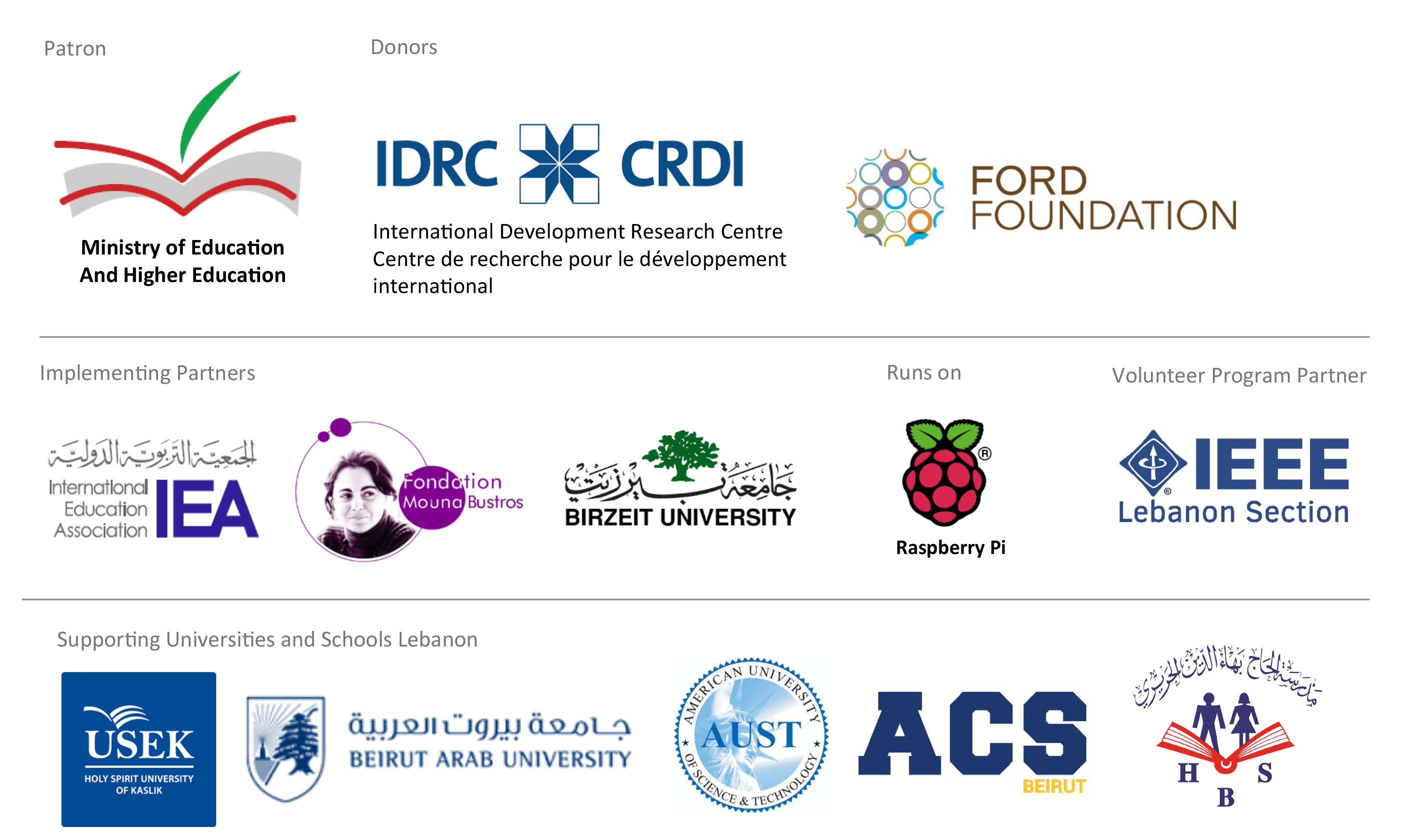Digital Learning Innovations Project
This research project, aims to design and use Digital Learning Innovations to improve the quality and accessibility of learning in and outside the classroom for children of host communities and Syrian refugees in Lebanon and Jordan.
In this context, the project addresses the quality of learning , the effectiveness of the capacity building program, the pedagogical and the technological solutions which encompass Coder-Maker’s Learning Designs, XLoBs and their scalability in the current schooling systems.
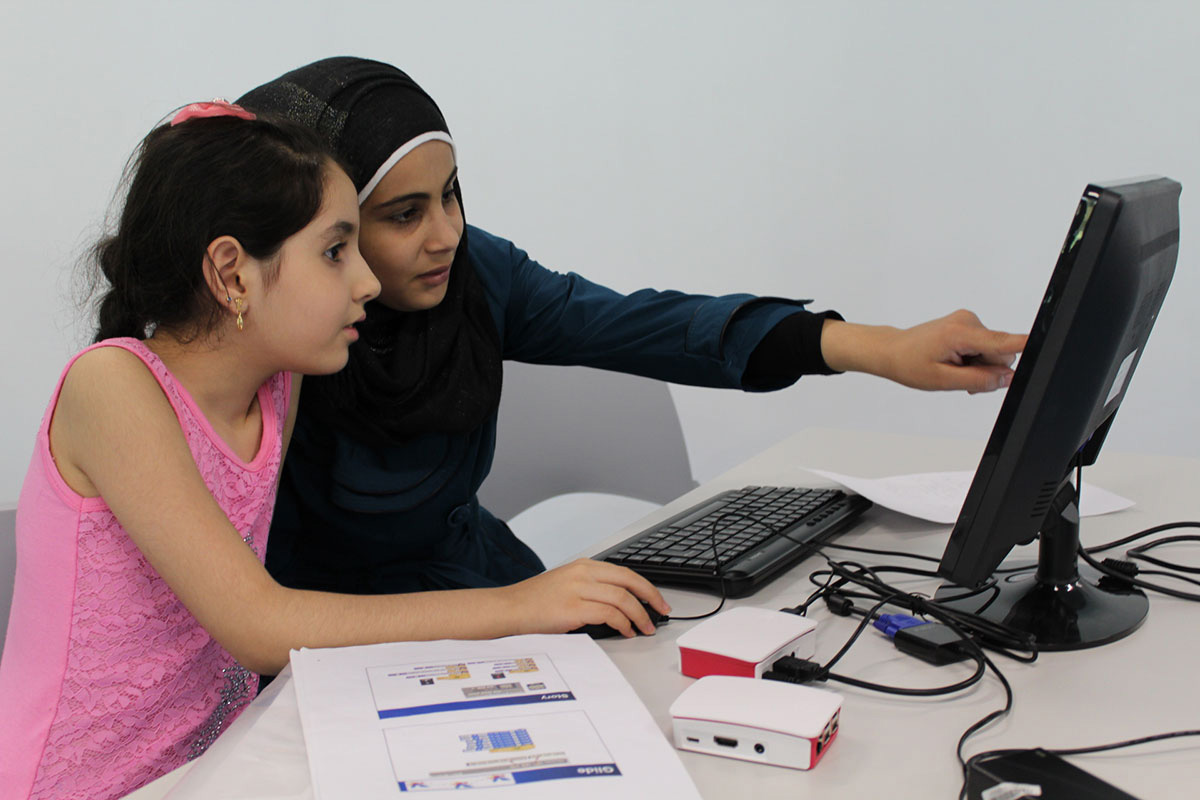
Research Goals
Develop a better understanding of:
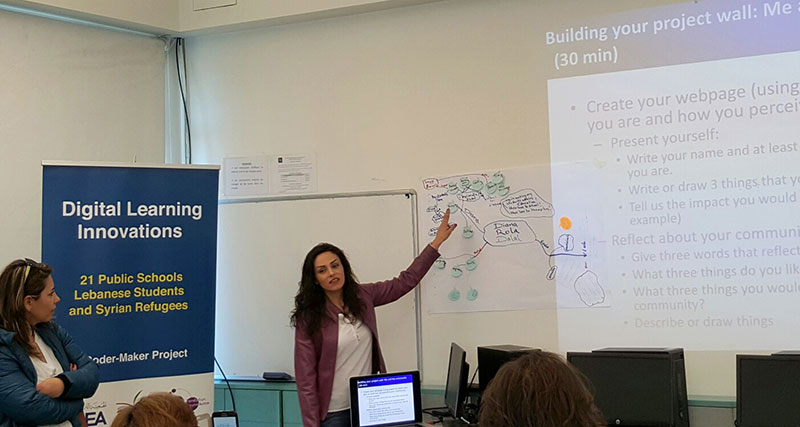
Research Specific Objectives

Expected Project outcomes
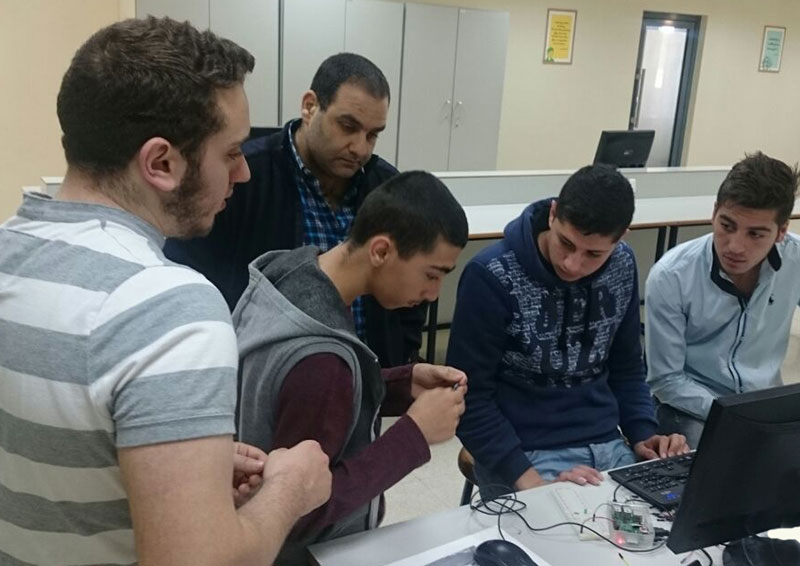
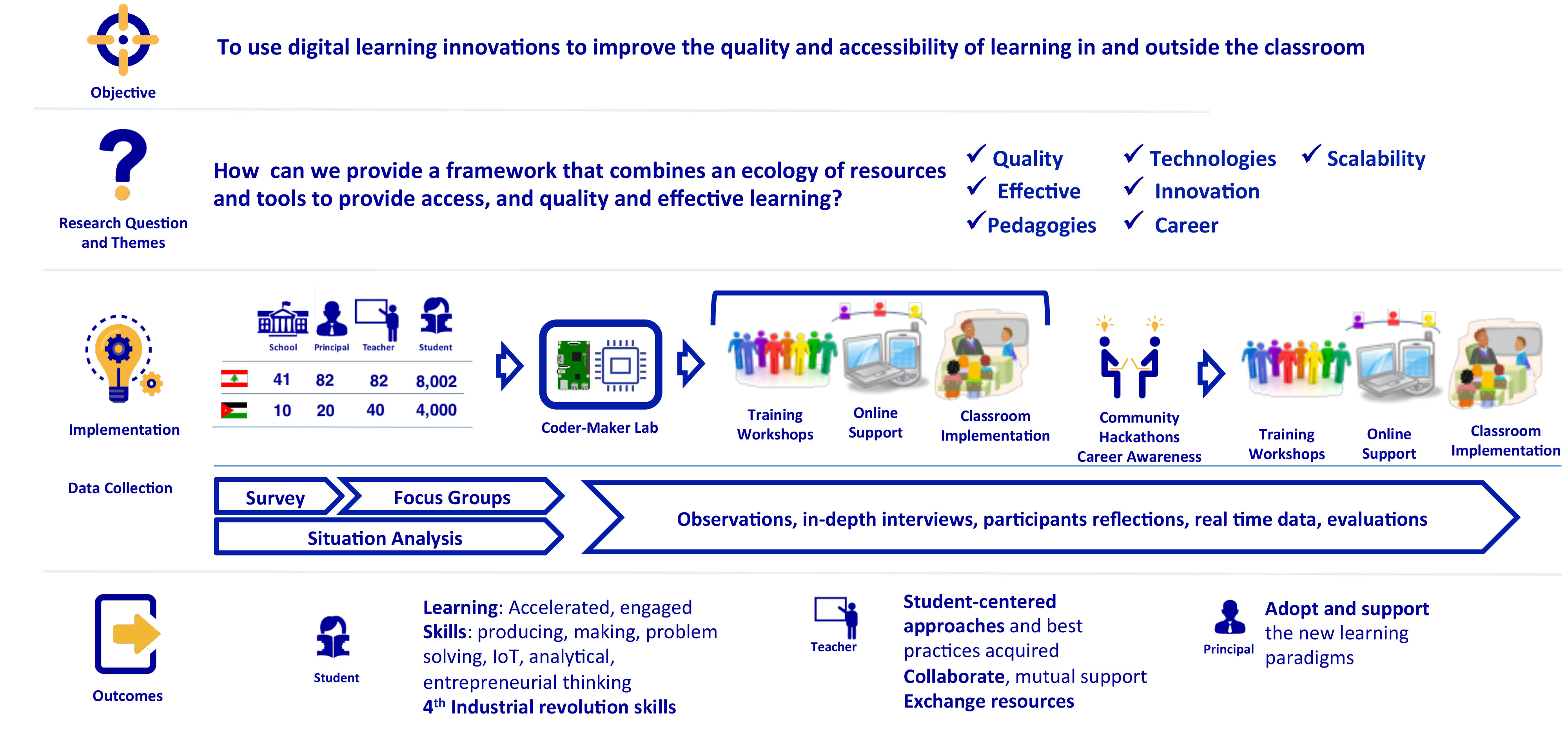
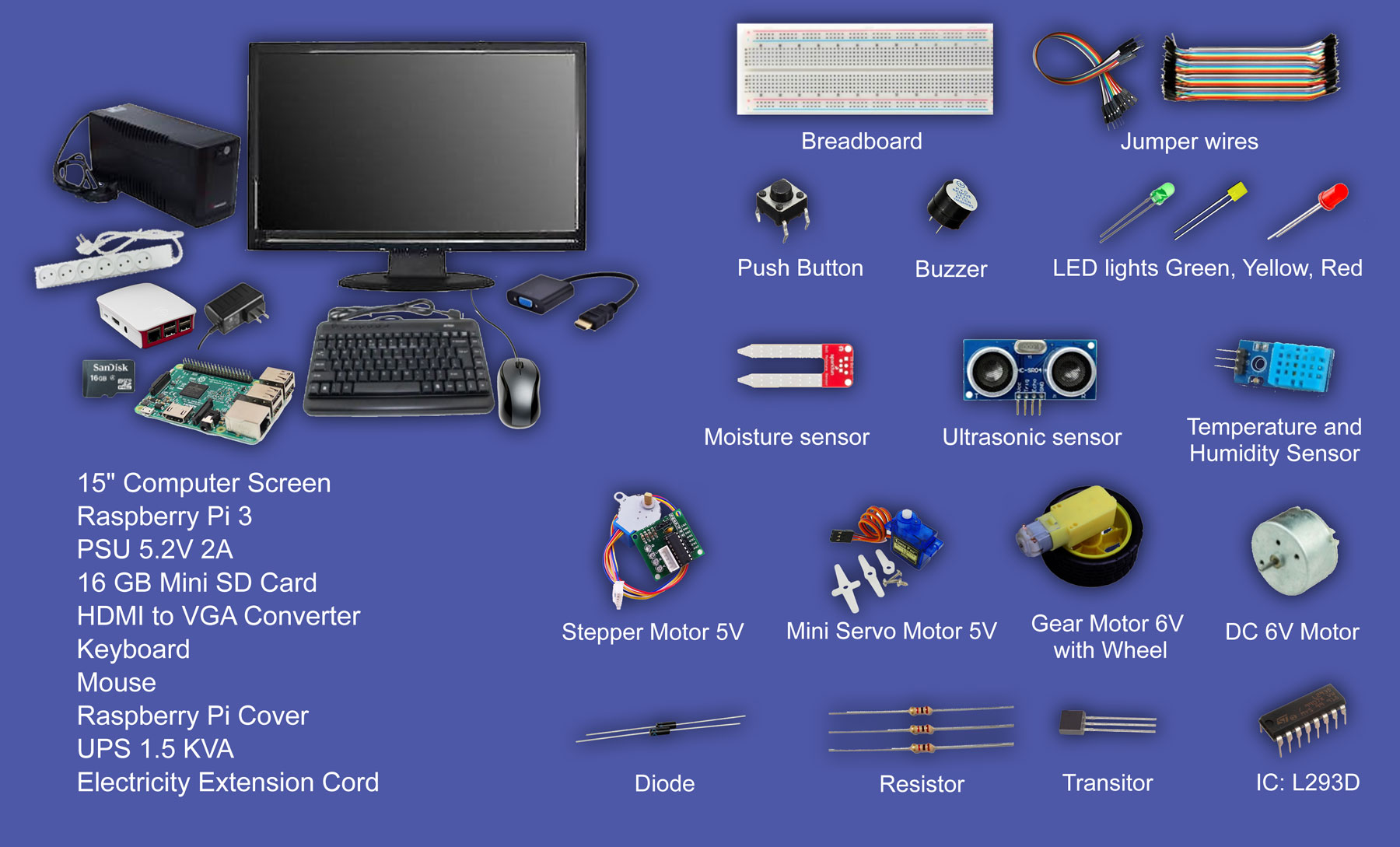
Workshops are provided in 5 centers across Lebanon:
Syrian and Lebanese Students learning together
Mohamad a Syrian student from Baakline Public School explaining his understanding of Python code
Students from Hosh El Omaraa Public High School exploring Ultrasonic sensor
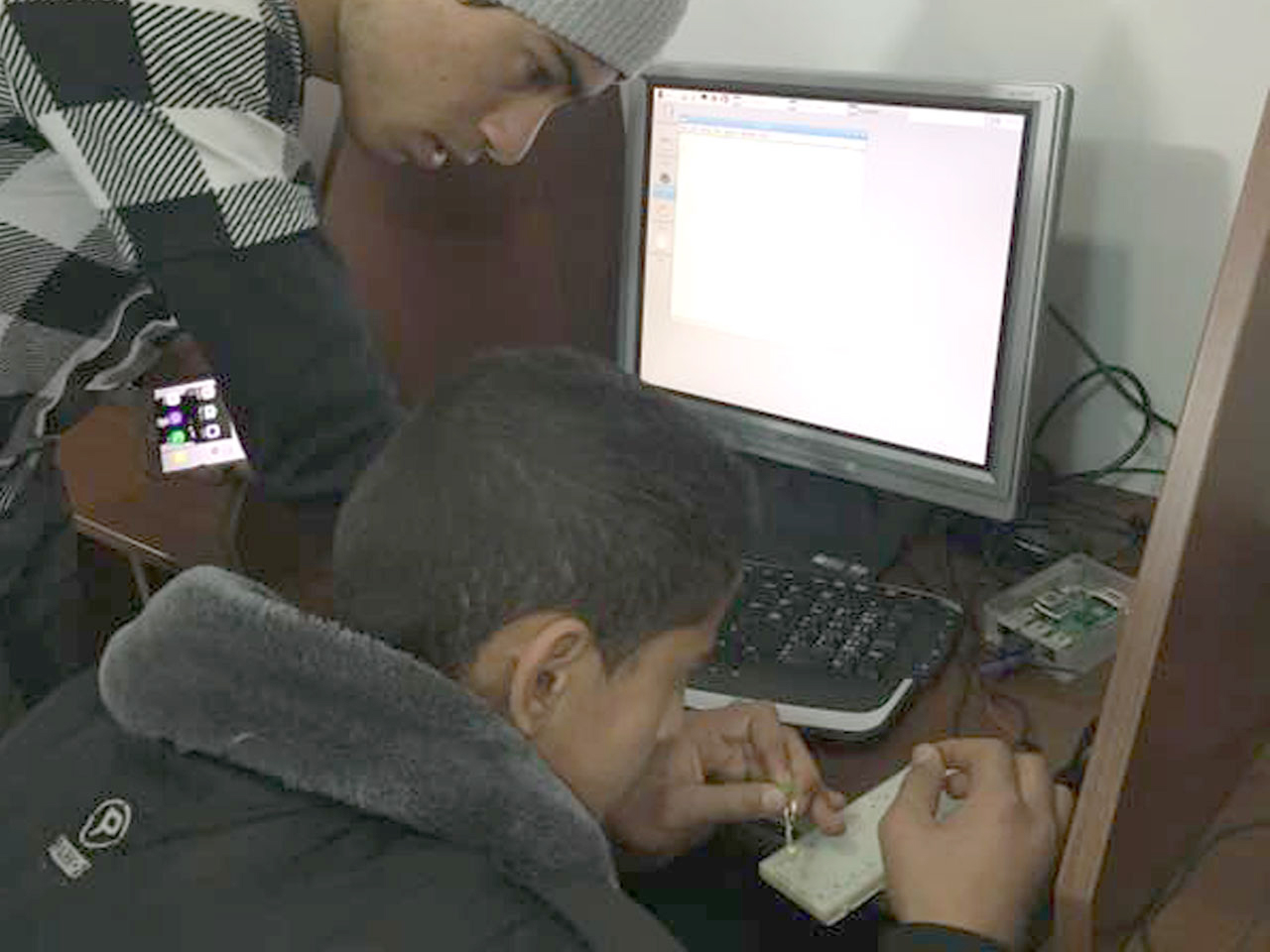
Students from Al Huda School learning the basics of circuitry
